LEWISTON — In one door of the nondescript Westminster Street building, employees enter and shower before donning scrubs and hairnets.
There’s a back hallway of high-tech heating, ventilating and air conditioning units, and dozens of electrical conduits spanning the ceiling, woven together like unlikely works of art, with 137 security cameras watching it all.
“Every aspect of this room has been engineered for maximum performance,” Joel Pepin said while giving a tour of JAR Cannabis Co.’s new 35,000-square-foot cultivation operation and company headquarters.
They’ve invested more than $3 million and it shows.
Soon, 40 people will work there every day. It’s the city’s single-largest marijuana project of 2021 — next-largest is a $1 million storefront build where McDonald’s used to sit on Lisbon Street.
Across the Androscoggin River in Auburn, 30-something undeveloped acres off Minot Avenue assessed by the city at $199,200 four years ago shot up to $4.8 million in value in 2021, all courtesy of cannabis grows popping up there.
In the Twin Cities, it was definitely a growing year.
For a snapshot of the landscape: Auburn has at least 46 adult-use recreational and medical marijuana operations, from cultivation sites to storefronts, and another 29 applications pending, according to city hall records.
In adult-use operations alone, the city has the third-highest number of active, conditional and pending licenses in the state at 34, behind only Kittery and Portland, as of Nov. 30, according to the Maine Office of Marijuana Policy.
In Lewiston, Director of Planning and Code Enforcement David Hediger has lost count of the number of times he’s said no — No, you can’t locate there. Or there. Or there. — after that city opted for a more purposely spaced-out approach to permitting marijuana operations.
Lewiston has 19 adult-use operations, tied for fourth-most in the state with South Portland.

“I think it’s a question of when does the market become saturated, which apparently, we’re not there yet,” Hediger quipped.
With two shops in Lewiston, Alex McMahan, a founding partner and operating manager at MEDCo, sees more of the same for 2022 with mixed results and potentially rude awakenings.
“Just in the past month, I’ve had everyone from one of our plumbers to one of our food vendors to a couple other random people say, ‘Hey, I’ve got some land, I’ve got some money, so I’m thinking about starting up a grow. What advice would you give me?'” he said. “Some of the people that just threw up a grow in their backyard because they thought they could make a bunch of money, they might realize this isn’t actually worth the headache.”
‘VERY INVITING’
The two cities saw nearly $10 million in marijuana-related construction in 2021 through the end of November, according to permit records.
In Auburn, it was $5.5 million, in Lewiston, $4.3 million, a mix of renovations, new builds and conversions, like a pool supply warehouse-turned-grow-operation on Center Street.
It can be challenging to measure the direct impact to the cities’ bottom lines: the state collects sales tax, not the locals, and investment-intensive operations often qualify for Maine’s Business Equipment Tax Exemption program.
“Elizabeth Ann’s was a convenience store, now it’s a marijuana store — from a building valuation (perspective), there hasn’t been a significant increase,” Hediger said. “Overall the impact has been minimal to the city.”
On the other hand, the Mystique Way Cannabis Park off Minot Avenue in Auburn is one striking example of what growth can mean.

A March 2020 photo shows some of the first greenhouses built in the Mystique Way Cannabis Park in Auburn. The 38-acre lot was assessed at just under $200,000 in 2017. The assessed value of the land and buildings there in 2021 is $4.8 million, according to city records. Russ Dillingham/Sun Journal file photo
The 38-acre lot was assessed at just under $200,000 in 2017 before a few acres were split off to an abutter.
With the addition of grow operation after grow operation, the assessed value of the land and buildings there increased from $2.7 million in 2020 to $4.8 million in 2021, according to city records.
The difference to the city: Roughly $4,700 in property taxes in 2017 versus roughly $115,000, plus personal property taxes, in 2021, according to Eric Cousens, Auburn’s director of planning and permitting.
“Marijuana businesses are contributing significant tax dollars to pay for city services, and as we approached the limit of not more than 20-25 stores, (we) adjusted our setbacks between businesses from 1,000 feet to 2,000 feet,” he said.
That’s intended to limit more development everywhere but in the city’s industrial zone.
“Auburn has and will always be supportive of new, cutting-edge industry and we will continue to welcome good business people that want to contribute to our city while ensuring that we maintain balance within our neighborhoods and ensure that one industry does not crowd out others,” Mayor Jason Levesque said.
Lewiston native Steve Peters opened a marijuana tissue culture lab on First Flight Drive in Auburn in February 2021 with two business partners. Vertikal Tech’s lab now houses nearly 100 different strains. Crops from the site will supply TheJoint.me, the trio’s new music-themed medical marijuana store opening in Portland soon, not far from Rock Row. Job applicants were encouraged to play an instrument.
“We all know the town of Auburn is very inviting to the cannabis industry,” Peters said. “Most importantly, I was able to secure a building over here with some people I grew up with that was a very well-kept building, that had the power we needed.”
In Lewiston, Hediger counted 11 active cultivation licenses, four manufacturing facilities and 14 stores as of November, with six stores and one manufacturing site pending, all a mix of medical and adult use. He said the city’s two-year-old marijuana regulations, which require distance buffers from places such as day cares and public parks, have turned back more development.
“There isn’t a week that we don’t get an inquiry. Some weeks we get multiple inquiries,” he said. “We should have been keeping track of how many times we say no — we say no a lot.”
Those same rules also limit the number of stores within 500 feet of each other to just two.
“That was a question at one time: ‘Is downtown Lisbon Street going to become this marijuana row?’ For better or worse, it hasn’t. Part of it is because of the setback standards,” Hediger said. “Dufresne Plaza downtown — you’ve got a giant buffer right there of 750 feet.”
Matt Taggart said it was conversations with Lewiston’s planning department that “absolutely made my mind up” about building his first adult use retail store at 1240 Lisbon St., the former home of McDonald’s.
Taggart, president of Emerald River Maine, is tentatively hoping to open at the end of January with six employees.
He said he’s also reached out to a Lewiston nonprofit hoping to sponsor a charity walk/run event in 2022.
“Lewiston, in my opinion, has done an incredible job setting up the zoning and the ordinances for these stores,” Taggart said. “Reality is reality, other areas are going to be oversaturated, and that’s not up to me to worry about the regulations on that. I pick wisely and I go where I am.”
The tax difference to the city: A $2,430 property tax bill on the 1240 Lisbon St. lot pre-build versus an estimated roughly $22,600 bill post-build between real estate and personal property taxes on Taggart’s project, according to the assessor’s office.
‘HOW CAN WE DO THAT AGAIN?’
Construction got underway in January for JAR Cannabis, gutting a former L.L.Bean facility at the 75 Westminster St. location to install rooms for each step of cultivation and processing, along with different entrances for different teams of workers.
They harvested their first crop in early December.
Automated controls oversee light intensity, fan speeds, temperatures, humidity and feeding schedules for flowering rooms of roughly 1,400 plants, each with a blue, traceable tag sticking out of the soil in its pot.
“What we’ve done in this facility, is, as we scale, we’re trying to find efficiencies, but we’re also trying to have flexibility,” said Pepin, 35. “Some of the strains eat at different times, so we want to try to automate as much as we can, but we also as growers want to be able to have the ability to give each strain exactly what it wants.”
One key to all of the controls is making things repeatable, he said.
“We can look back and if we have a really great crop, we have the ability to look at, ‘Why did that go well? What was our feed cycle? How can we do that again?’ So it’s very manageable, it’s very measurable,” he said.
In the next few weeks, Pepin said he and business partners Ryan Roy and Adam Platz will assess how soon to build out the next 15,000 square feet of the floor they occupy at the site, adding, among other things, three more flowering rooms.
“For us, we’re just owned by two dudes from Auburn and a third dude from Turner, so there’s three of us and we basically expanded into all of this by positive cash flow; we don’t have investors,” Pepin said. “So right now the company is going through growth and it’s exciting, we’re looking at the other phase, but we’re really making sure that we don’t commit financially to more than we can handle.”
The Lewiston facility will grow for adult-use wholesale as well as supplying JAR’s stores in South Portland and Newry, along with stores planned for Windham soon and Portland and Carrabassett Valley later in 2022.
“There’s a few places in Auburn right now that we’re interested in that just won’t rent to cannabis,” Pepin said. “The search goes on.”
‘THE SOUL OF CANNABIS’
Ryan Wallace, director of the University of Southern Maine’s Maine Center for Business and Economic Research, said he hopes to secure funding to study employment and the economic impact of the marijuana industry in the state.
“Certainly at the beginning, there’s kind of a mad rush in, and over time we’ll kind of see who survives,” he said. “Like any industry, I think there will probably be some big winners and the ones that have the largest scale are able to compete — the ones that are able to vertically integrate and reap the cost savings from that sort of integration, where they’re growing and then producing and then going to retail all owned under one roof.”
He sees potential parallels with Maine’s craft brew industry over the past decade.
“People say, ‘How sustainable is this?’ There’s still new breweries popping up left and right,” Wallace said. The impact of tourism, too, remains a big question, he said. “Certainly the brewers have tried to answer that, tried to understand what they contribute to the state’s tourism economy.”
McMahan at MEDCo opened stores on Lisbon Street in 2018 and Lewiston’s Main Street in 2019. Stores in Gardiner and Newry were new in 2021.
“We’ve kind of built a little bit of a reputation in the region as far as having quality stuff, so we see a fair bit of people with out-of-state med cards that come and do some shopping,” he said. “Whether they’re coming from New Hampshire or Massachusetts, I have to imagine that’s the same for a lot of the stores around here.”
Retailers tend to view each other as friendly competition, he said. Each has to find their niche and audience.
“A lot of the businesses that have popped up, I think are in it for all the right reasons or have the soul of cannabis in mind, which I think is an important thing to preserve as we go forward,” he said.
McMahan’s advice to the would-be growers who have asked about getting into the industry: Know who you’ll be selling to, he said. As many storefronts as there seemingly are, many already have committed supply.
“We get dozens of different companies that come by every month trying to sell us their product, and the thing is, we have relationships that we’ve had for years, so we know where our products are going to come from,” he said. “For 2022, I think we’re going to see a lot of what we saw in 2021, a lot of big grows popping up and then not having anywhere to sell it because the stores are already lined up. We’re already seeing a lot of the new growers that didn’t necessarily know what they were getting themselves into, we’re seeing a lot of them kind of get into desperation mode.”
Send questions/comments to the editors.


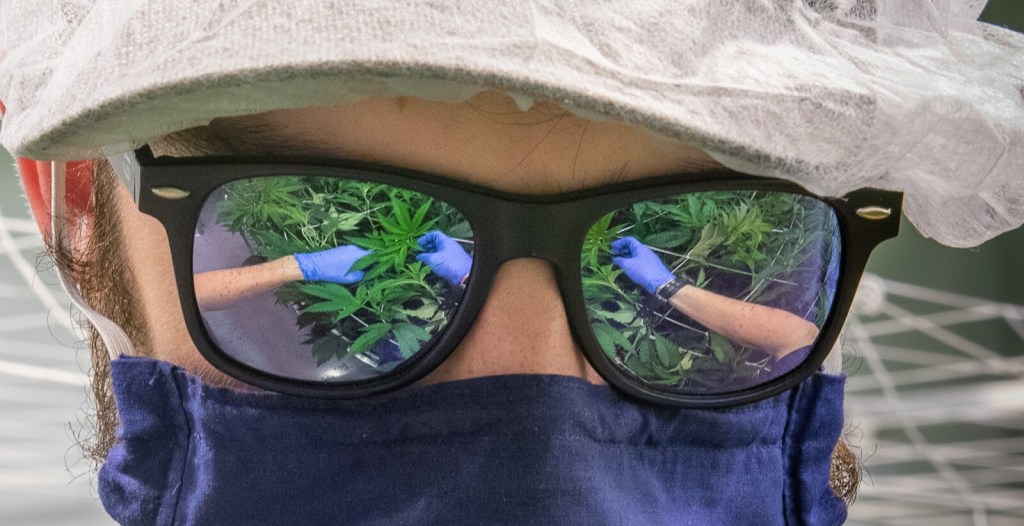
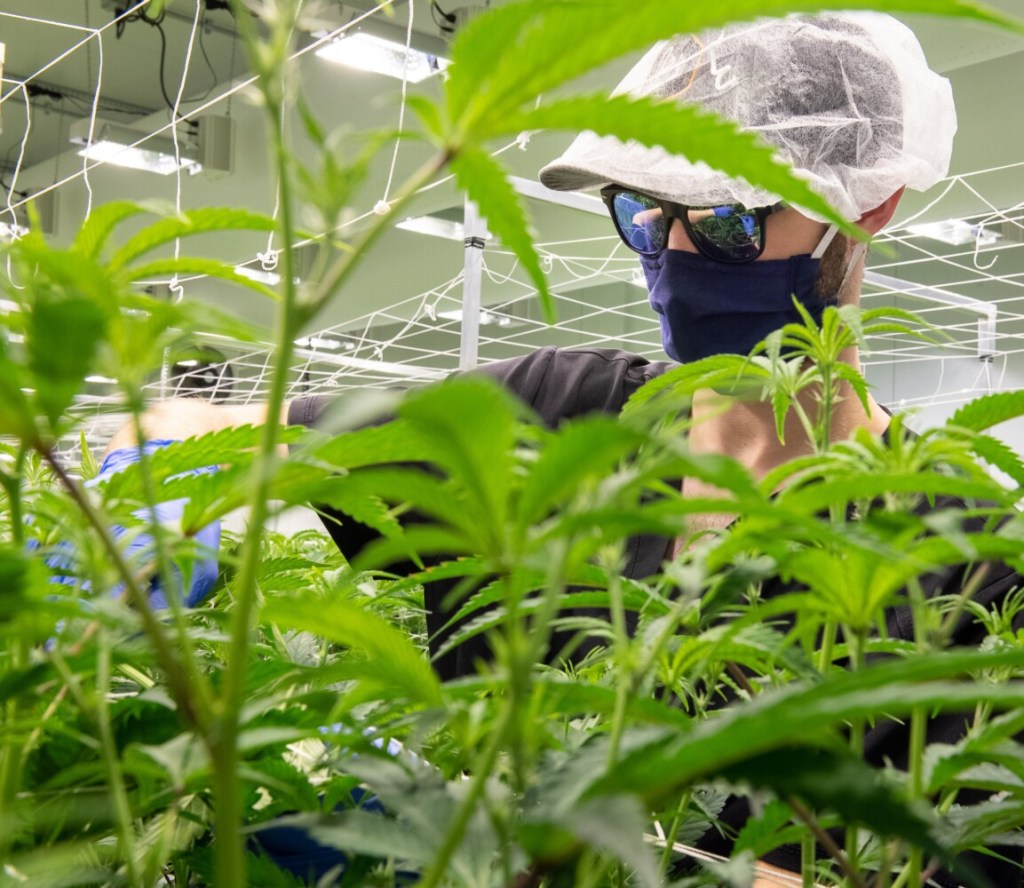
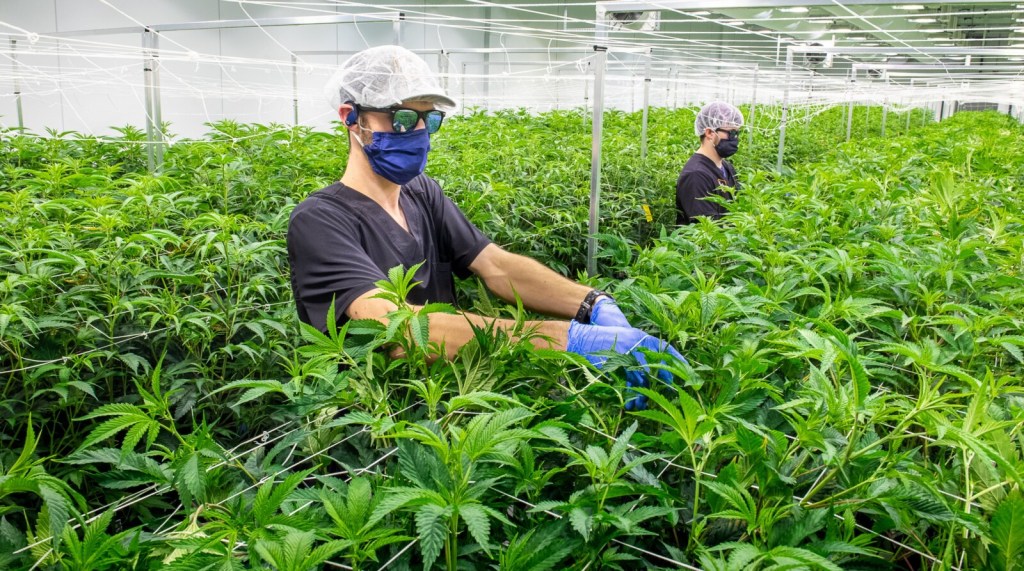
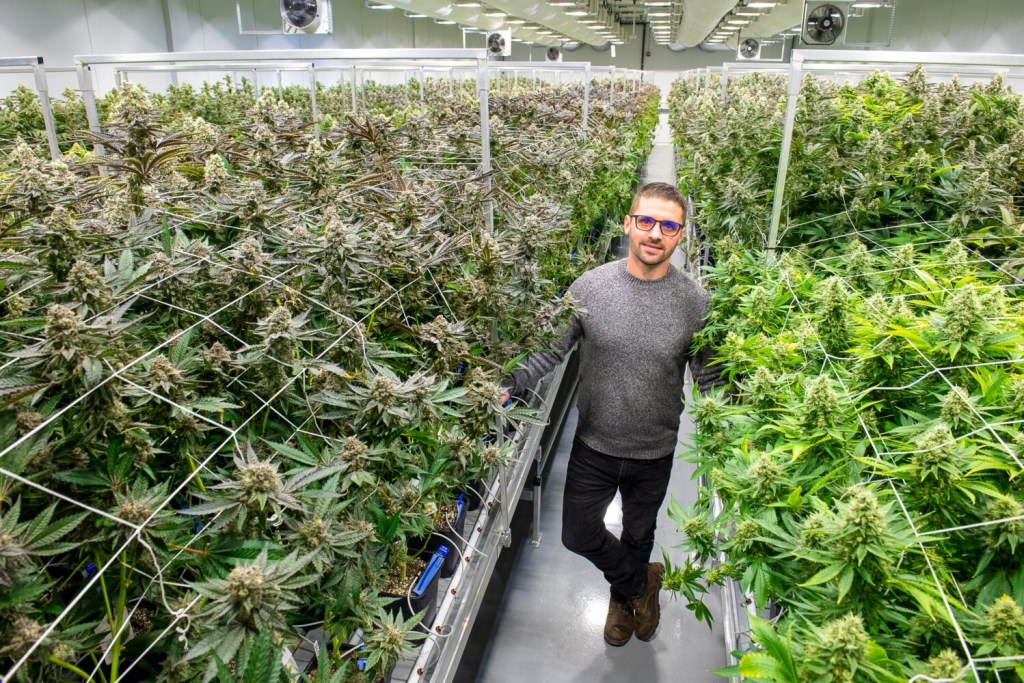

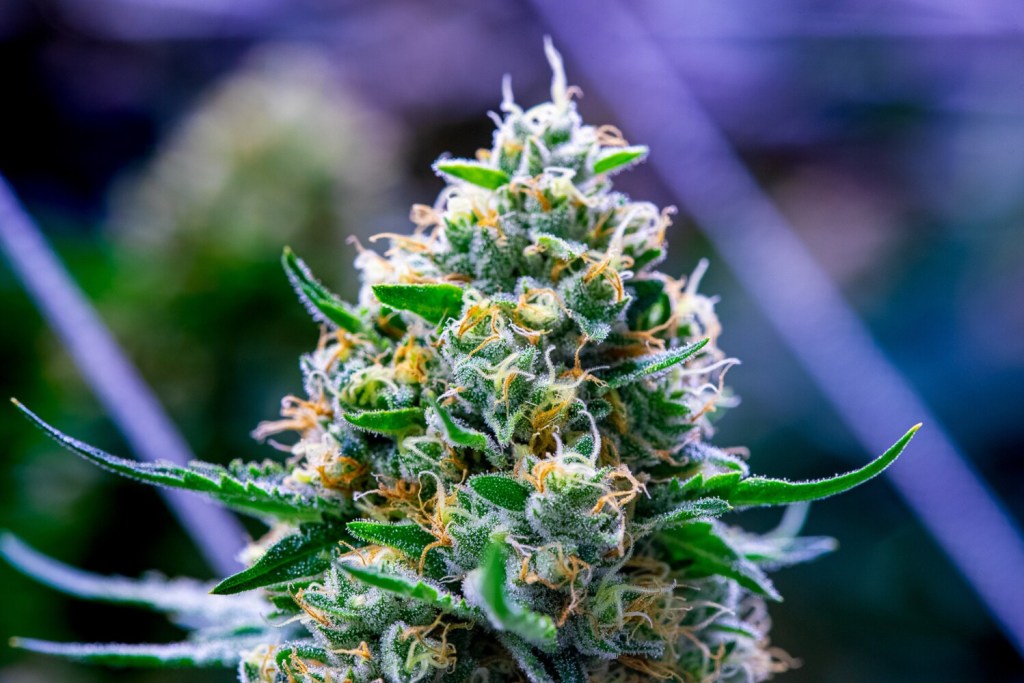
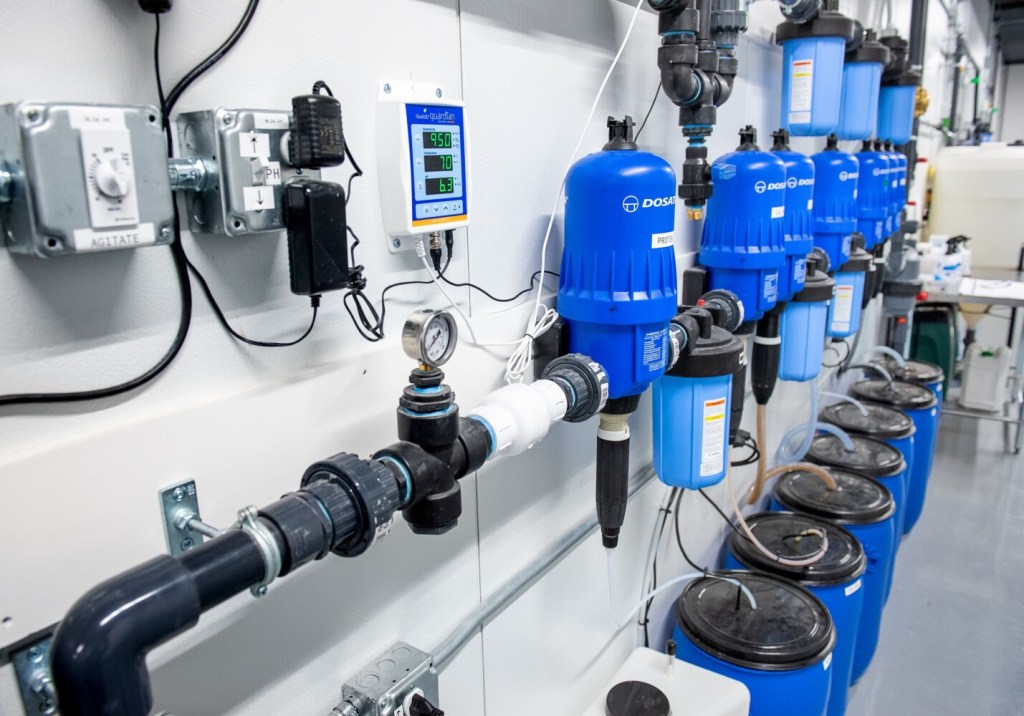

Comments are no longer available on this story